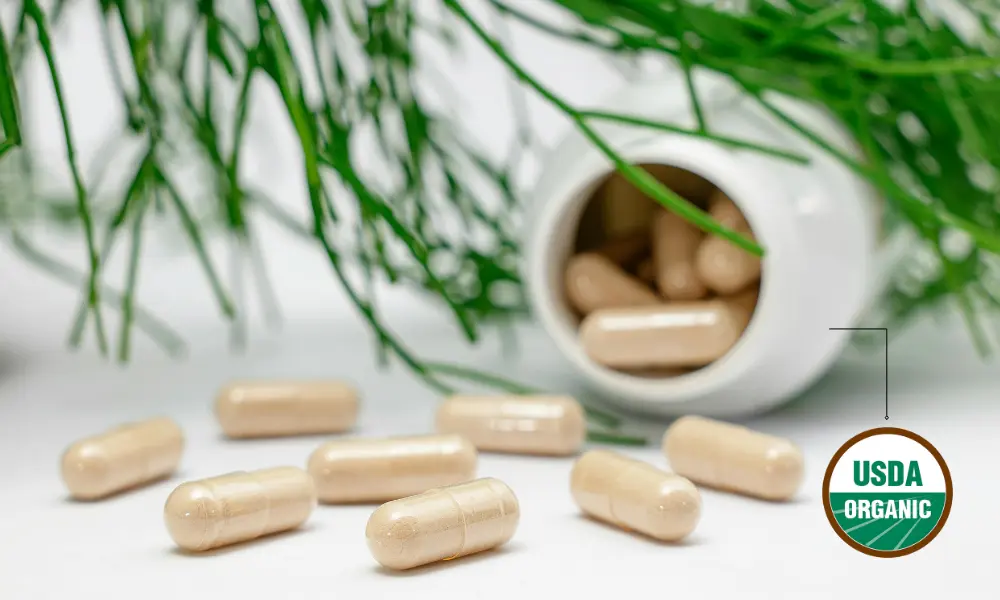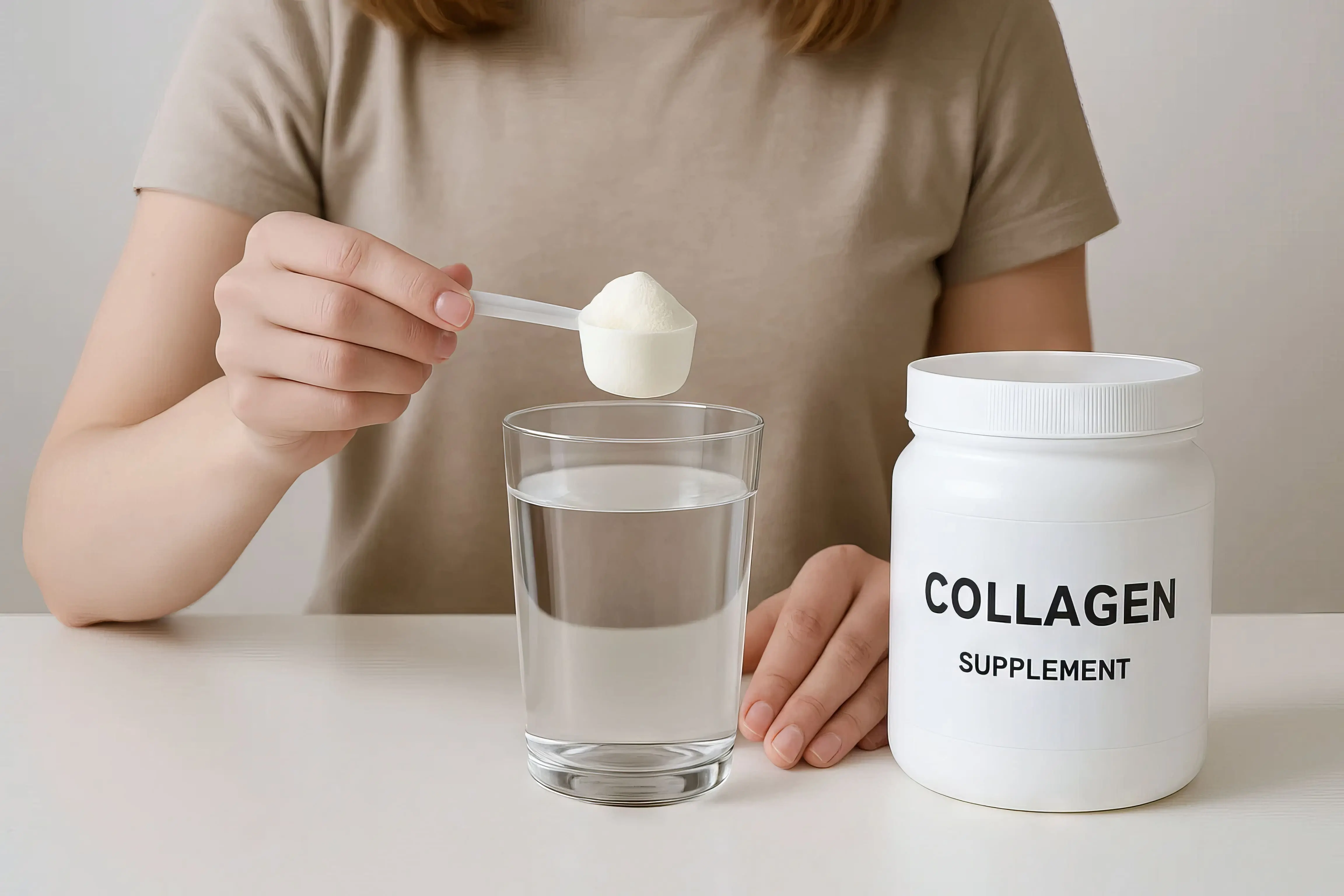How to Get USDA Certification: A Complete Guide for Supplement Manufacturers - Introduction

The USDA Organic Certification is an esteemed mark of integrity in the supplement industry, opening doors for manufacturers by guaranteeing products are made according to strict organic standards. A USDA label signifies that a product is free from harmful chemicals and synthetic additives, which is crucial for maintaining consumer trust. As a supplement manufacturer, obtaining this certification can set you apart from competitors and align your products with the ever-increasing demand for health-conscious choices. In this guide, we will navigate through the intricacies of obtaining USDA certification, focusing on the steps, benefits, and critical tips that can streamline the process for your supplement brand. By understanding these elements, you position your products at the forefront of the organic market.
Key Takeaways
- USDA Certification Strengthens Brand Credibility and Market Reach: Earning USDA Organic Certification signals purity, transparency, and compliance, helping supplement brands gain consumer trust, access premium pricing, and expand into health-conscious and global markets. It’s a powerful differentiator in an increasingly competitive industry.
- A Structured Process Ensures Compliance and Organic Integrity: The certification involves a 5-step process: developing an Organic System Plan, certifier review, on-site inspection, report evaluation, and final decision. Each step ensures that manufacturing aligns with USDA organic standards—laying the foundation for a trusted, high-quality product.
- Early Planning, Recordkeeping, and Inspection Prep Are Crucial for Success: Start early, maintain meticulous records, and ensure your team is prepared for inspections. These proactive steps minimize delays and strengthen your application. Partnering with a knowledgeable manufacturer like F.A.M.E. Health Labs can simplify the process and elevate your certification journey.
What Is USDA Certification?
USDA Certification plays a crucial role in ensuring the safety and quality of food products in the United States. By upholding stringent standards, the USDA provides two major types of certifications: organic labels and meat inspection labelling. These certifications signify that products meet specific safety, processing, and quality requirements. The USDA's rigorous oversight helps maintain consumer confidence by ensuring that products are sustainably sourced and properly labelled, setting them apart in the competitive food & supplement industry.
Why Choose Organic Certification?
Choosing organic certification can significantly enhance product credibility and consumer trust. Organic certification confirms that a product is created without harmful pesticides or synthetic additives, adhering to rigorous farming and handling standards. This assurance not only improves brand reputation but can also lead to increased market demand and premium pricing. In the supplement industry, where quality is paramount, being USDA certified organic provides a competitive edge and aligns with the consumer shift toward natural and sustainable products.
Importance of USDA Certification in Supplement Industry
In the supplement industry, the importance of USDA Certification cannot be overstated. It represents a commitment to safety, quality, and environmental stewardship, essential for a brand's integrity. With more consumers prioritizing health and sustainability, organic certification is often a key deciding factor when purchasing supplements. For manufacturers, it opens markets that value organic, aids in building a trusted brand image, and meets regulatory requirements essential for global trade. Moreover, a USDA certification serves as a testament to a supplement's purity and process reliability, boosting consumer confidence and loyalty. As the landscape of dietary supplements continues to evolve, aligning with USDA standards becomes not just a choice but a strategic business move.
Check-Out the Required Steps to Become Certified Organic
Develop an organic system plan
Developing an Organic System Plan (OSP) is your first critical step towards USDA certification. It serves as a detailed blueprint of how your supplement manufacturing process meets organic regulations. The OSP should include information on production practices, pest control methods, record-keeping systems, and procedures for maintaining the integrity of organic ingredients. By thoroughly detailing these elements, you demonstrate your commitment to organic standards and lay the groundwork for a smooth certification process.
Get OSP reviewed by certifying agent
Once you've crafted your Organic System Plan, the next step is to have it reviewed by a USDA-accredited certifying agent. This review involves the agent assessing your plan for compliance with organic regulations. They'll scrutinize your methods and processes to ensure they meet stringent organic requirements, offering guidance or suggesting modifications as needed. This stage is crucial as it validates your commitment to maintaining the integrity of organic standards in your product line.
Receive an inspection
Receiving an inspection is a pivotal part of the certification process. A qualified inspector will conduct an on-site visit to verify that your operations align with your Organic System Plan. During this inspection, the inspector will check for compliance, reviewing records and evaluating processes. This ensures that your practices uphold the organic standards, providing a comprehensive assessment that supports the integrity of your USDA organic certification.
Get Inspection report reviewed by certifying agent
After the on-site inspection, the inspector prepares a detailed report outlining their findings. This report is then reviewed by your certifying agent, who evaluates it against USDA organic standards. They assess whether the practices documented during the inspection align with organic regulations. This review underscores the authenticity and thoroughness of your organic practices, ensuring all criteria for certification are met before proceeding to the final decision.
Receive a decision from the certifier
The final step in the USDA certification process is receiving a decision from the certifier. Based on the inspection report and your Organic System Plan, the certifier decides whether your operations comply with USDA organic standards. A positive decision results in the awarding of a certificate of certification, while any non-compliances require resolution for approval. This decision marks the official recognition of your commitment to organic integrity, allowing you to label your products as USDA certified organic.
Explore the Important Tips on How to Get USDA Certified
Start the process early
Starting the USDA certification process early is crucial for a seamless experience. By initiating the steps well in advance, you allow ample time for developing a comprehensive Organic System Plan, making necessary adjustments, and addressing any unforeseen challenges. Early preparation helps ensure a thorough and stress-free certification process.
Prepare for your on-site inspection
Preparation for your on-site inspection is key to a successful USDA certification. Ensure all records are up-to-date, your staff is informed and trained on organic practices, and facilities are ready for inspection. This proactive approach not only demonstrates your commitment but also facilitates a smooth and efficient inspection process.
Keep good records
Maintaining good records is essential throughout the USDA certification process. Accurate documentation of your production methods, ingredient sourcing, and compliance practices ensures you meet organic standards. Good records provide clear evidence during inspections, streamline the review process, and support the integrity of your organic certification.
Final Thoughts
Embarking on the journey to obtain USDA organic certification distinguishes your brand in the competitive supplement industry. At F.A.M.E. Health Labs, we recognize the significance of quality and compliance. Our expertise as a leading health supplement manufacturer ensures that your products not only meet but exceed industry standards. We offer comprehensive support, guiding you through each stage of the certification process to help establish your brand as a trusted name in health and wellness. By partnering with us, you embrace a future of innovation and consumer trust. Start your path to success with our tailored services and make your mark in the organic supplement market.
FAQs
How long does the USDA organic certification process take?
The USDA organic certification process typically takes three to six months. This duration includes developing an Organic System Plan, undergoing inspections, and awaiting the certifier's decision. Early preparation can help facilitate a smoother and quicker process.
Can all supplements be USDA certified organic?
Not all supplements can receive USDA organic certification. To qualify, supplements must meet specific criteria, including being made with certified organic ingredients and adhering to organic production methods. Some synthetic substances may disqualify certain products.
What are the main requirements to get USDA certification?
To secure USDA certification, you must develop an Organic System Plan detailing organic practice, undergo a compliance inspection, and demonstrate adherence to organic standards, including using approved ingredients and maintaining detailed records. These steps ensure alignment with USDA organic regulations.
Can a supplement be partially USDA organic certified?
Yes, a supplement can be labeled as "Made with Organic Ingredients" if it's partially organic. This requires at least 70% of the ingredients to be certified organic, with the remaining 30% meeting certain guidelines, including the exclusion of most synthetic additives.



.png)





















.gif)


